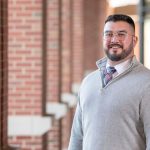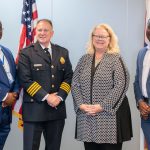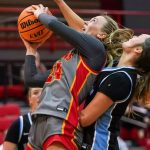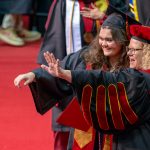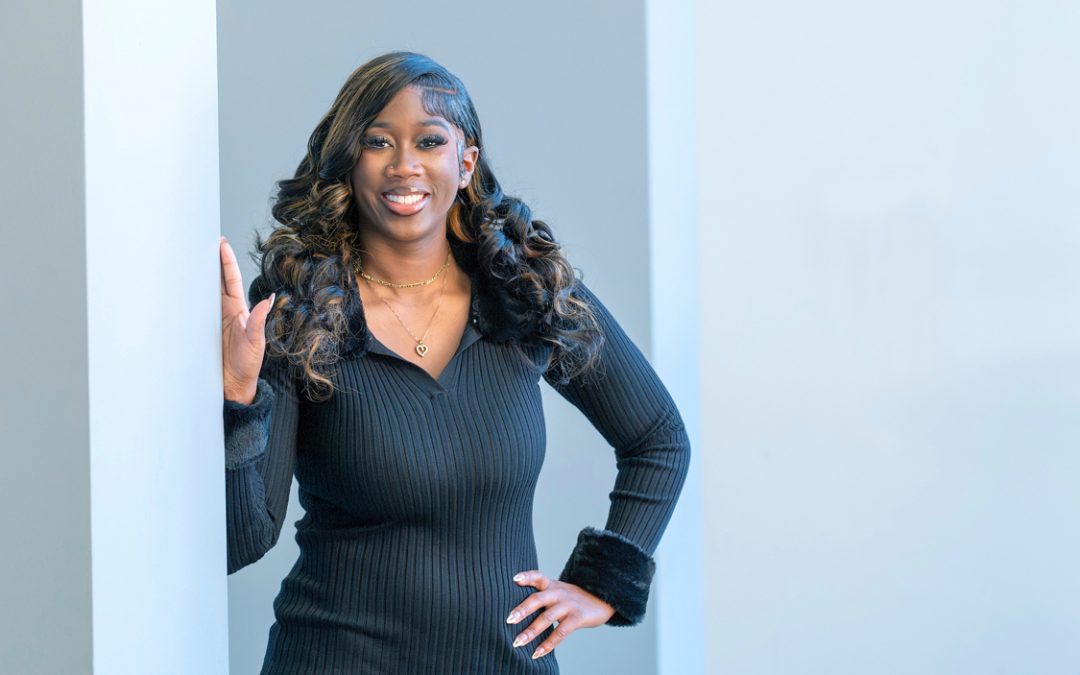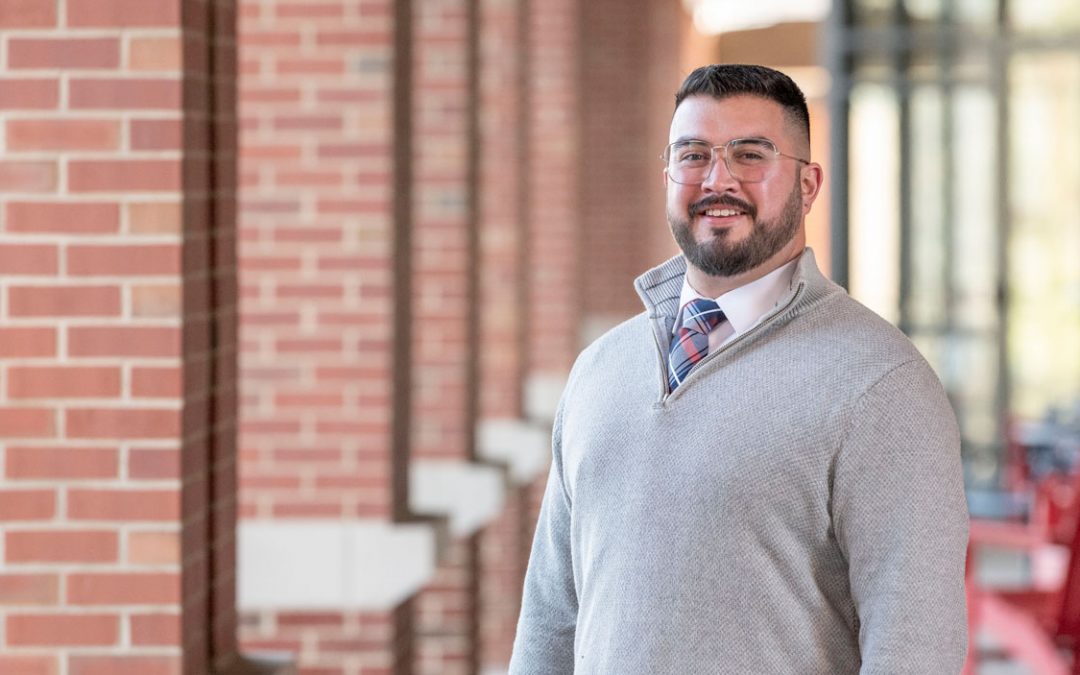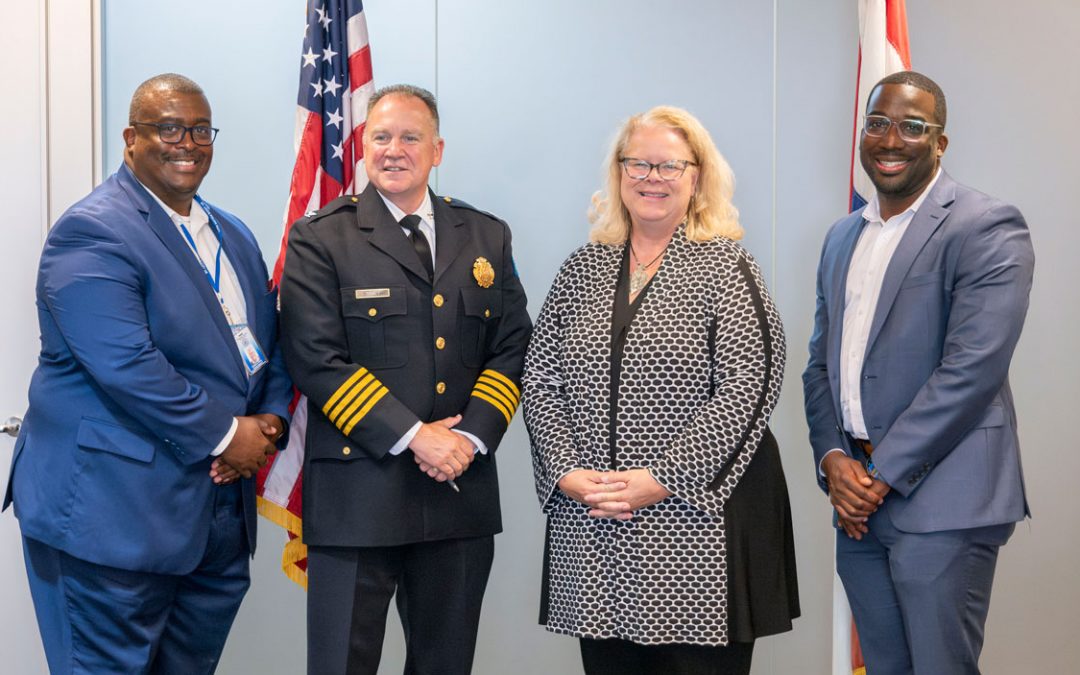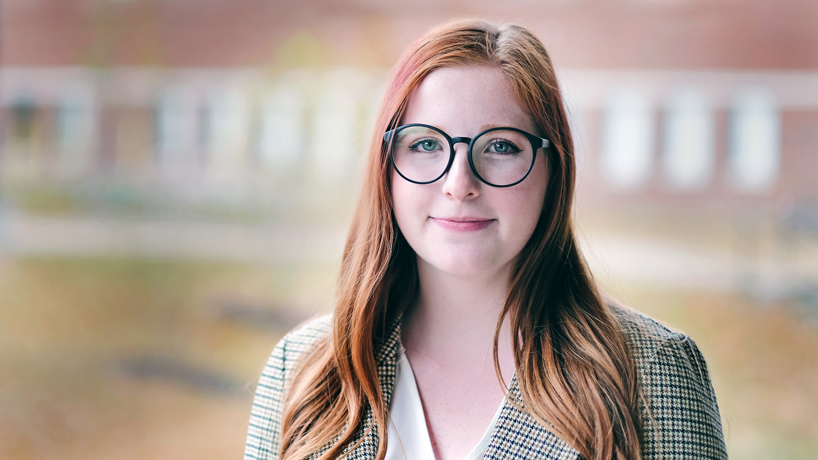
December psychology graduate Claudia Campbell acquired a variety of research experiences in Assistant Professor Rachel Wamser-Nanney’s lab. She now hopes to continue studying child trauma at the graduate level. (Photo by August Jennewein)
Early in her college career, Claudia Campbell received the same advice repeatedly: Go talk to your professors.
As a freshman, she shook the recommendation off. The University of Missouri–St. Louis student didn’t know which faculty members to approach. And if she did, she wouldn’t know what to talk to them about.
But within a couple of class sessions during her sophomore year, Campbell’s way of thinking changed.
Seated in a Psychology of Trauma course, she listened intently as the instructor, Assistant Professor Rachel Wamser-Nanney, described her wide-ranging research interests related to traumatic stress. Campbell found both Wamser-Nanney and her research captivating and knew this was a prime opportunity to seek out additional conversations.
“When I met Dr. Wamser in her class, I was like, ‘She’s incredible. I have to figure out what she’s doing,’” Campbell said. “The way that she spoke about the work she does with trauma and kids was inspiring, and I realized that this is what I definitely want to do.”
Despite her early reservations, the psychology major walked into Wamser-Nanney’s office and began asking questions. Now at the conclusion of her undergraduate years, the December graduate believes it’s one of the best things she’s ever done.
“Claudia came to my first office hours when they were open that week,” Wamser-Nanney recalled. “Students rarely show up, so I was thinking, ‘Oh no, is there already an issue? We haven’t even had grades yet.’ She just came in and wanted to hear about my research because she was interested. It was immediately apparent to me how smart and thoughtful she is.”
Following that conversation and a few others, Campbell went on to work in Wamser-Nanney’s lab, supporting the very research she was interested in originally.
She’s assisted with a variety of projects, including those focused on complex trauma in children and coping strategies for children who have experienced sexual abuse. Campbell, who additionally earned a minor in child advocacy studies, has coauthored papers and had opportunities to present work in St. Louis, at the Missouri State Capitol in Jefferson City and at an international psychology conference in Washington, D.C. She was also awarded a certificate for the best oral presentation at UMSL’s 2018 Undergraduate Research Symposium.
“As a student and researcher, Claudia cares about what she does, which I think is most important,” Wamser-Nanney said. “She doesn’t lose sight that these are people, and she wants to do good work. She’s energizing to work with, too. She’s consistently pleasant and professional. The thing that really helps set her apart is her desire for constructive feedback, how well she takes that and what she learns from the feedback.”
Campbell’s passion for trauma research is driven by a desire to create better opportunities for children and to reduce stigmas centered around behavioral issues. She hopes that her work and the presentations that followed helped demonstrate the importance of studying these topics.
“I think the value in presenting research is that a lot of people don’t understand why research is done, especially because studies can seem as if you are looking at such a small factor,” Campbell said. “I think it’s nice to be able to talk to people who either don’t do research at all or don’t do research in that area, so they can see the value in what’s being done. It’s an interesting challenge to translate minute statistical findings to something that has real-world value.”
With her undergraduate years complete, Campbell hopes to continue learning and researching at the graduate level. She’s submitted applications to a few programs, including UMSL, and hopes her honors education, clinical experiences at UMSL’s Community Psychological Service and research efforts have helped prepare her for the next step.
“I think to get the most out of a psychology education, students should participate in research,” Campbell said. “You get to see what’s going on with psychologists every single day. Whereas with the classroom, you’re learning what’s already been established. Research takes the next step. When I started out as a psych major, I was under this false impression that we already had all of the answers. I’ve found that’s not necessarily the case. We have our assumptions based on findings, but there are still so many unanswered questions.”




